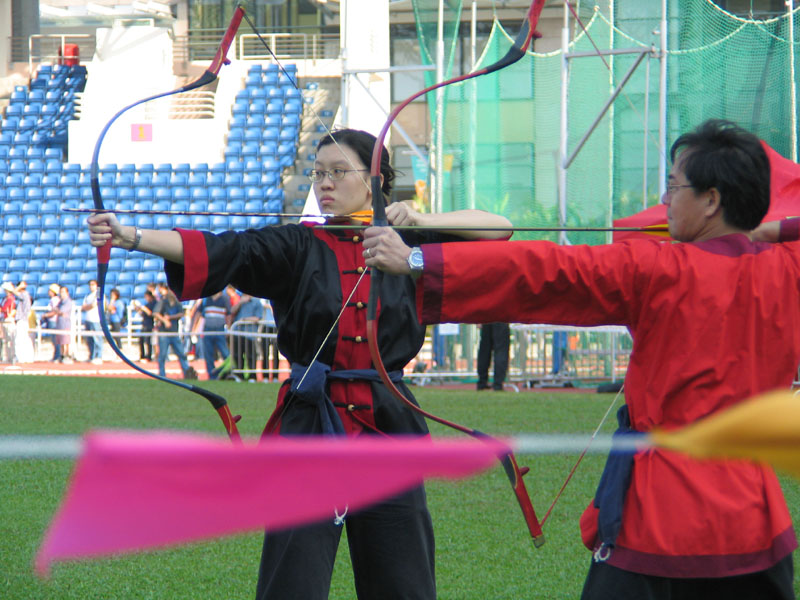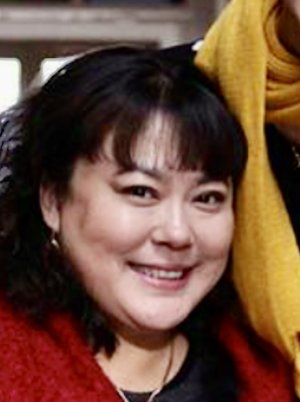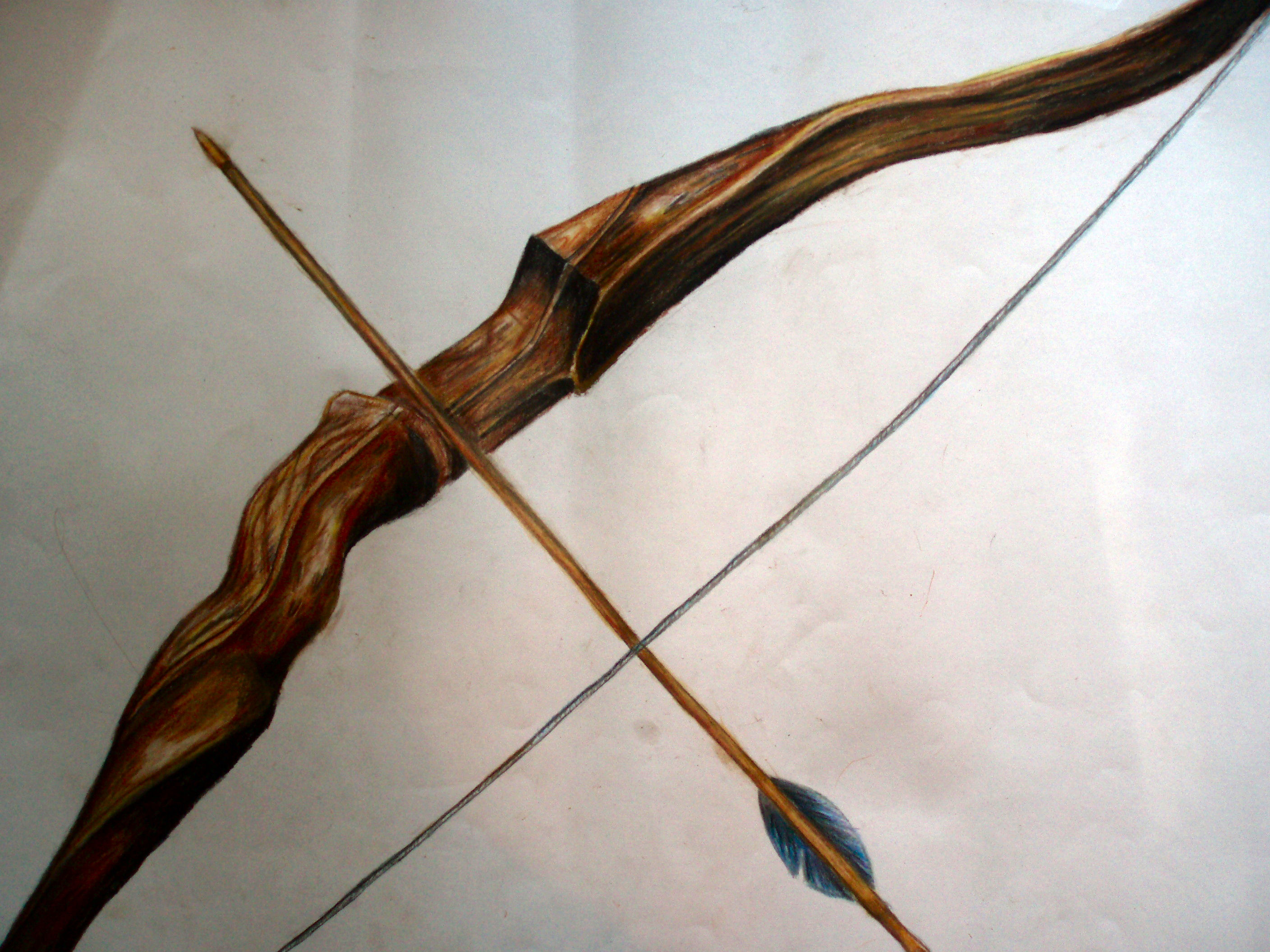

(Once), when Confucius was conducting an archery meeting in a vegetable garden at Kio-hsiang, the lookers-on surrounded it like a wall. But when, rulers and officers practise ceremonies and music, never has it been known that such practice led to their banishment or ruin. Hence came the saying, 'The archers shoot in the interest of their princes.' Thus, in the states, the rulers and their officers devoted themselves to archery, and the practice in connexion with it of the ceremonies and music. If a prince were frequently so congratulated, he received an increase to his territory if he were frequently so reprimanded, part of his territory was taken from him. When his officers had frequently that privilege, their ruler was congratulated if they frequently failed to obtain it, he was reprimanded. Those of them whose bodily carriage was in conformity with the rules, and whose shooting was in agreement with the music, and who hit the mark most frequently, were allowed to take part at the sacrifices.
#Li jing bow and arrow trial#
Therefore, anciently, according to the royal institutes, the feudal princes annually presented the officers who had charge of their tribute to the son of Heaven, who made trial of them in the archery-hall. Hence it is said that 'the archery served to show the completeness of (the archer's) virtue.'

When their characters were established, no such evils as oppression and disorder occurred and when their undertakings were successful, the states were tranquil and happy. In this way, when they clearly understood the meaning of those regulating measures, and were thus able to avoid all failure in their services, they were successful in their undertakings, and their character and conduct were established. Therefore the son of Heaven regulated his shooting by keeping in his mind the right feeling of all officers a feudal prince, by keeping in his mind the times of his appearing before the son of Heaven a dignitary, being a Great officer, by keeping in his mind the observing of the laws (which he had learned) and an officer, by keeping in his mind that he must not fail in the duties of his office.

#Li jing bow and arrow free#
The Zou-yu is expressive of joy that every office is (rightly) filled the Li-shou is expressive of the joy at audiences of the court the Cai-pin is expressive of the joy in observing the laws (which have been learned) and the Cai-fan is expressive of the joy in being free from all failures in duty. To regulate (the discharging of the arrows), there was, in the case of the son of Heaven, the playing of the Zou-yu in the case of the feudal lords, that of the Li-shou in the case of the dignitaries, the Great officers, that of the Cai-pin and in the case of officers, that of the Cai-fan.


 0 kommentar(er)
0 kommentar(er)
